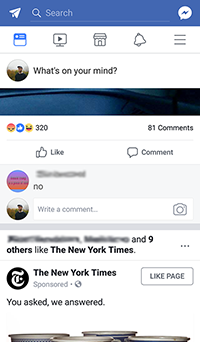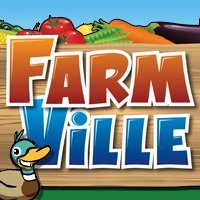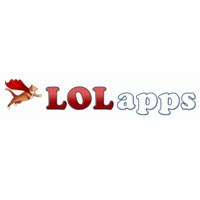A micropayment is a financial transaction involving a very small sum of money and usually one that occurs online. A number of micropayment systems were proposed and developed in the mid-to-late 1990s, all of which were ultimately unsuccessful. A second generation of micropayment systems emerged in the 2010s.
Gold farming is the practice of playing a massively multiplayer online game (MMO) to acquire in-game currency, later selling it for real-world money.

Google Pay Send, previously known as Google Wallet, was a peer-to-peer payments service developed by Google before its merger into Google Pay. It allowed people to send and receive money from a mobile device or desktop computer.

Mobile social networking is social networking where individuals with similar interests converse and connect with one another through their mobile phone and/or tablet. Much like web-based social networking, mobile social networking occurs in virtual communities.
Virtual goods are non-physical objects and money purchased for use in online communities or online games. Digital goods, on the other hand, may be a broader category including digital books, music, and movies. Virtual goods are intangible by definition.
Zong was a mobile payment company that allowed users to make micropayments on the Internet if they have a postpaid mobile phone. The payments were charged to their mobile phone bills by the mobile operator. The company was acquired by eBay in 2011 and disappeared in 2015.

Mob Wars is a multiplayer role-playing game hosted on the social networking site Facebook. It allows players to engage in Mafia-style wars with one another and has become one of the most lucrative Facebook applications and the first to net US$1M per month in revenue. However, this number has never been confirmed by the developer or any third parties.

Zynga Inc. is an American video game developer and publisher known for its social video game services. It was founded in April 2007, with headquarters in San Mateo, California. The company primarily focuses on mobile and social networking platforms. Zynga states its mission as "connecting the world through games".

FarmVille is a series of agriculture-simulation social network games developed and published by Zynga in 2009. It is similar to Happy Farm and Farm Town. Its gameplay involves various aspects of farmland management, such as plowing land, planting, growing, and harvesting crops, harvesting trees and raising livestock. The sequels FarmVille 2 and FarmVille 3 were released in September 2012 and November 2021, respectively.

FishVille is a defunct real-time aquarium simulation game developed by Zynga, it was available as an application on the social-networking website Facebook. The game allowed members of Facebook to manage virtual aquariums by rearing fish. As of October 2011, FishVille had 1.6 million monthly active users. The game was discontinued on December 5, 2012.
Playdom, Inc. was an online social network game developer popular on Facebook, Google+ and Myspace. The company was founded in the San Francisco Bay Area by University of California, Berkeley graduates Ling Xiao and Chris Wang and Swarthmore College graduate Dan Yue. In 2009, the market for games played on social networking sites was valued at $300 million, consisting mostly of online sales of virtual goods.
A social network game is a type of online game that is played through social networks or social media. They typically feature gamification systems with multiplayer gameplay mechanics. Social network games were originally implemented as browser games. As mobile gaming took off, the games moved to mobile as well. While they share many aspects of traditional video games, social network games often employ additional ones that make them distinct. Traditionally they are oriented to be social games and casual games.
YoWorld is a browser-based virtual world game which was released on May 8, 2008. It is developed by Big Viking Games. The game operates on the freemium model, and is supported through microtransactions, as well as a voluntary in-game ad program. The game itself is free-to-play, however, players can purchase in-game currencies or enroll in special programs and offers to improve their game-play experience or help them progress faster, using real money.

Cow Clicker is an incremental social network game on Facebook developed by video game researcher Ian Bogost. The game serves as a deconstructive satire of social games. The goal of the game is to earn "clicks" by clicking on a sprite of a cow every six hours. The addition of friends' cows to the player's pasture allows the user to also receive "clicks" whenever the player's cow is clicked. A premium currency known as "Mooney" allows the user to purchase different cow designs and skip the six-hour interval between clicks.

Google Play, which is also known as the Google Play Store or Play Store, is a digital distribution service operated and developed by Google. It serves as the official app store for certified devices running on the Android operating system and its derivatives, as well as ChromeOS, allowing users to browse and download applications developed with the Android software development kit and published through Google. Google Play has also served as a digital media store, with it offering various media for purchase such as books, movies, musical singles, television programs, and videogames.

Bubble Safari is a defunct tile-matching social network game by Zynga. The object is to help a monkey named Bubbles reconnect with his friends. Following its May 2012 release, Bubble Safari became the fastest-growing Facebook game, with 1.9 million active users for the week of July 9. PC Magazine ranked Bubble Safari as no. 5 on its Best Facebook Games list. Arcade game designer Mark Turmell, noted for such games as NBA Jam, received credit for Bubble Safari’s development. Bubble Safari is Zynga’s first arcade game, the first Zynga game released on Zynga.com and Facebook simultaneously, and the first game from Zynga San Diego.

ChefVille is a defunct multiplayer restaurant simulation social network game created by Zynga. The game was announced at Zynga's June 2012 Unleashed event, debuted August 2012 on Facebook, and was released October 3, 2012 on Zynga.com. Within the first month of its release, ChefVille had become the No. 1 Facebook game. As of early October 2012, ChefVille had more than 4.8 million daily active users (DAU) and more than 45 million monthly active users (MAU).
Amazon Coins is a digital payment method created by Amazon.com. Currently, the coins can only be used to purchase software and for microtransactions on apps downloaded from the Amazon Appstore on Kindle, Kindle Fire, and Android devices.

Lolapps was a developer and publisher of social games on the Facebook platform. Lolapps was best known for creating Ravenwood Fair with John Romero which had 25 million players worldwide.











